Related Research Articles

The Sex Pistols are an English punk rock band formed in London in 1975. Although their initial career lasted just two and a half years, they became culturally influential in popular music. The band initiated the punk movement in the United Kingdom and inspired many later punk, post-punk and alternative rock musicians, while their clothing and hairstyles were a significant influence on the early punk image.
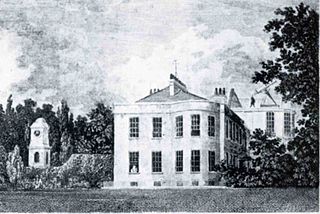
Highbury is an area in North London and located in the London Borough of Islington. Highbury was owned by Ranulf, brother of Ilger, and included all the areas north and east of Canonbury and Holloway Roads.

Never Mind the Bollocks, Here's the Sex Pistols is the only studio album by English punk rock band the Sex Pistols, released on 28 October 1977 through Virgin Records in the UK and on 11 November 1977 through Warner Bros. Records in the US. As a result of the Sex Pistols' volatile internal relationships, the band's lineup saw changes during the recording of the album. Original bass guitarist Glen Matlock left the band early in the recording process, and while he is credited as a co-writer on all but two of the tracks, he only played bass and sang backing vocals on one track, "Anarchy in the U.K." Recording sessions continued with a new bass player, Sid Vicious, who is credited on two of the songs written by the band after he joined. While Vicious's bass playing appeared on two tracks, his lack of skill on the instrument meant that many of the tracks were recorded with guitarist Steve Jones playing bass instead. Drummer Paul Cook, Jones and singer Johnny Rotten appear on every track. The various recording sessions were led alternately by Chris Thomas or Bill Price, and sometimes both together, but as the songs on the final albums often combined mixes from different sessions, or were poorly documented who was present in the recording booth at the time, each song is jointly credited to both producers.
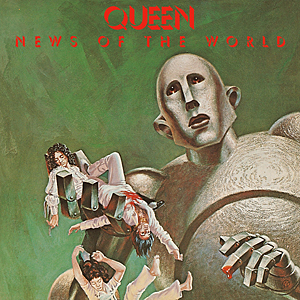
News of the World is the sixth studio album by the British rock band Queen, released on 28 October 1977 by EMI Records in the United Kingdom and by Elektra Records in the United States. News of the World was the band's second album to be recorded at Sarm and Wessex Sound Studios in London, and engineered by Mike Stone, and was co-produced by the band and Stone.
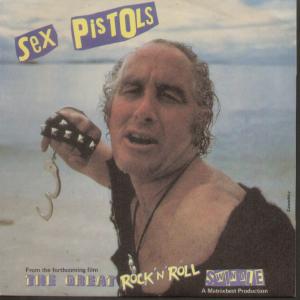
"No One Is Innocent" was the fifth single by the British punk rock band the Sex Pistols. It was released on 30 June 1978. The Pistols had split up early in 1978, losing bassist Sid Vicious and original lead vocalist Johnny Rotten. "No One Is Innocent" was recorded by remaining members Paul Cook and Steve Jones, with vocals performed by Ronnie Biggs, a British criminal notorious for his part in the Great Train Robbery of 1963. At the time of "No One Is Innocent" Biggs was living in Brazil, still wanted by the British authorities, but immune from extradition. The song was credited to Jones and Biggs.

The Hit Factory is a recording studio in New York City owned and operated by Troy Germano. Since 1969, The Hit Factory recording studios have existed in six different locations in New York City as well as facilities in London and Miami. Today the studios are located at 676 Broadway in the Noho neighborhood of New York City.
Neve Electronics was a manufacturer of music recording and broadcast mixing consoles and hardware. It was founded in 1961 by Rupert Neve, the man credited with creating the modern mixing console.
The Sham Pistols were a short-lived punk rock supergroup composed of guitarist Steve Jones and drummer Paul Cook of the Sex Pistols, with vocalist Jimmy Pursey and bass player Dave Tregunna of Sham 69. Although now referred to as The Sham Pistols, no name had been decided upon at the time. There was a possibility that they may have been called the Sex Pistols.
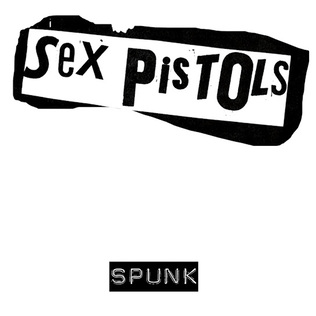
Spunk is a bootleg demo album by the English punk rock band the Sex Pistols. It was originally released in the United Kingdom during September or October 1977.
Dave Goodman was a record producer and musician, perhaps best known as the live sound engineer for Sex Pistols, and the producer of three of their studio demo sessions.
Associated Independent Recording (AIR) is an independent recording company founded in London in 1965 by record producers George Martin, John Burgess, Ron Richards, and Peter Sullivan. In 1970 the company established its own professional audio recording facilities, AIR Studios.

Sex Pistols is a box set anthology of the career of the punk band The Sex Pistols with singer Johnny Rotten. It was released on 3 June 2002. The set comprises three themed CDs and an 80-page booklet.
Bill Price was an English record producer and audio engineer who worked with the Clash, the Sex Pistols, Guns N' Roses, Sparks, the Jesus and Mary Chain, Nymphs, the Waterboys, Mott the Hoople and Simon Townshend. He was chief engineer on the first three solo studio albums by Pete Townshend: Empty Glass (1980), All the Best Cowboys Have Chinese Eyes (1982) and White City: A Novel (1985).

Capitol Studios is a recording studio located at the landmark Capitol Records Tower in Hollywood, California, United States. The studios, which opened in 1956, were initially the primary recording studios for the American record label Capitol Records. While they are still regularly used by Capitol recording artists, the facilities began to be made available to artists outside the label during the late 1960s to the early 1970s. The studios are owned by Universal Music Group, the parent company of Capitol Music Group.
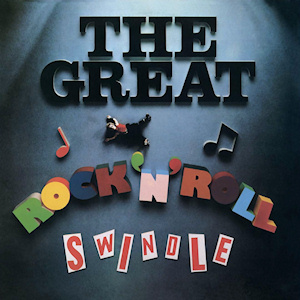
The Great Rock 'n' Roll Swindle is the soundtrack album of the film of the same name by the Sex Pistols.
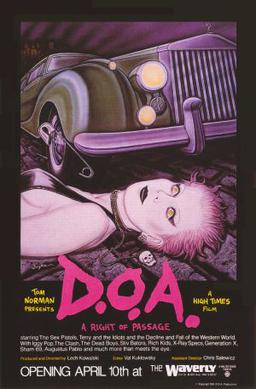
D.O.A.: A Right of Passage is a 1980 rockumentary film directed by Lech Kowalski about the origin of punk rock. The rockumentary takes interview and concert footage of some of punk rock's earliest bands of the late 1970s scene. It features live performances by the Sex Pistols, The Dead Boys, Generation X, The Rich Kids, X-Ray Spex, and Sham 69, with additional music from The Clash, Iggy Pop, and Augustus Pablo.
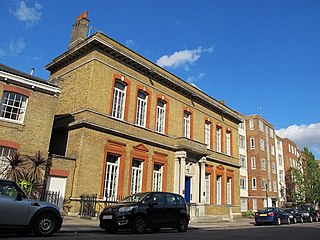
RAK Studios is a recording studio complex, with residential facilities, used by Rak Records, and located near Regent's Park in central London, England. It was founded in 1976 by English record producer Mickie Most.

Fantasy Studios was a music recording studio in Berkeley, California, United States, at the Zaentz Media Center, known for its recording of award-winning albums including Journey's Escape and Green Day's Dookie. Built as a private recording studio for artists on the Fantasy Records label in 1971, it was opened to the public in 1980 for recording, mixing and mastering. It was permanently closed on September 15, 2018.
Quad Studios Nashville was a four-studio recording facility established as Quadrafonic Sound Studio in 1971 on Music Row in Nashville, Tennessee, US. The studio was the location of numerous notable recording sessions, including Neil Young's Harvest, Jimmy Buffett's "Margaritaville", Joan Baez' "The Night They Drove Old Dixie Down", and Dobie Gray's "Drift Away". The studio's location has been the home of Sienna Recording Studios since 2014.
"E.M.I." is a song on the Sex Pistols' 1977 debut, and sole album, Never Mind the Bollocks, Here’s the Sex Pistols. It was written after the group's contract with record label EMI had been terminated on 6 January 1977 after only three months, following the publicity storm caused by their appearance on the Today programme in December 1976. The song, often called a diss track, mocks the label for wanting to cash in on the growing punk phenomenon and sign the band, only to drop them when the group's antics damaged the label's reputation. The song was first recorded the same month at Gooseberry Studios, in Glen Matlock's last recording session with the band before his departure, but the version that appears on the album was a re-recording made two months later at Wessex Studios. It was first played live at Notre Dame Hall, London, on 21 March 1977.
References
- ↑ "Wessex Studios". shadyoldlady.com. Retrieved 23 November 2019.
- 1 2 3 Massey, Howard (2015). The Great British Recording Studios. Lanham, Maryland, US: Rowman & Littlefield. pp. 245–248. ISBN 978-1-4584-2197-5.
- ↑ "Good vibrations". The Independent. 3 November 2004. Retrieved 9 November 2022.
- ↑ "Islington: Churches | British History Online". www.british-history.ac.uk. Retrieved 9 November 2022.
- 1 2 Dwyer, John (September 1974). "Wessex-Chrysalis" (PDF). Studio Sound and Broadcast Engineering. Link House Publications Ltd. Retrieved 14 December 2023.
- ↑ Mike Batt memoir "The Closest Thing To Crazy", Nine Eight/Bonnier Books,2024 978-1785120848.
- ↑ Michie, Chris (1 November 2000). "The Bill Price Interview". Mixonline. Retrieved 9 November 2022.
- ↑ Buskin, Richard (September 2004). "Classic Tracks: The Sex Pistols 'Anarchy In The UK'". Sound On Sound. SOS Publications Group. Retrieved 14 December 2023.
- ↑ Epstein, Daniel (28 October 2017). "Queen's 'News of the World: 10 Things You Didn't Know". Rolling Stone .
- ↑ "500 Greatest Songs of All Time". Rolling Stone .
- ↑ David Chiu (16 October 2017). "How Queen Weathered The Sex Pistols & Punk With News Of The World". The Quietus . Retrieved 12 December 2018.
- ↑ Roberts, Chris (3 November 2017). "Queen – News of the World: 40th Anniversary Edition album review". Loudersound.com. Retrieved 4 June 2018.